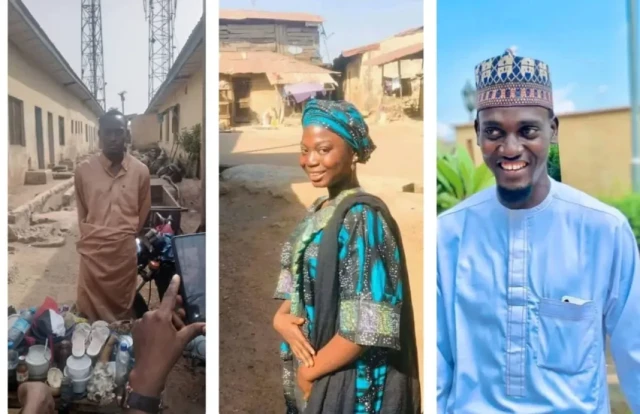KWARA, Nigeria - The trial of Abdulrahman Bello and his alleged accomplices in the suspected ritual murder of 22-year-old Hafsoh Lawal took a dark turn as disturbing evidence, including severed human body parts, charms, and blood-filled containers, was presented in a High Court in Ilorin, Kwara State.
Led by the State Attorney-General and Justice Commissioner, Barrister Senior Sulyman, the prosecution commenced its case with a series of shocking testimonies that left the courtroom in disbelief, unraveling more details about the February 2025 incident that rocked the community.
Assistant Superintendent of Police, Yusuf Garba, from the State Criminal Investigation Department (CID), was the first witness for the prosecution.
He stated that he received various items related to the case, such as human hands, female slippers, mobile phones, charms, an axe, and blood-stained bottles, all registered under charge sheet number CER/22/25.
However, during cross-examination by defense attorneys Barristers Chukwudi Maduka and A.O. Oseni, Garba conceded that he was not present during the arrest or the recovery of the exhibits, but confirmed that the items were brought to his office with the suspects.
Inspector Mohammed Kamal from the homicide unit, the second witness, revealed that one of the defendants admitted to the murder and assisted police in locating additional human remains.
He confirmed that the body parts were stored at the University of Ilorin Teaching Hospital (UITH).
“The victim’s father identified the severed hands as belonging to his daughter,” Kamal stated.
In a heartfelt testimony, Ibrahim Adefalu, the victim’s father, shared how his daughter had gone out to attend a friend's baby-naming ceremony but never returned.
“Her phone went dead, and attempts to find her were fruitless. The police eventually traced her phone to Bello, who confessed to killing and dismembering her,” he tearfully recounted.
Adefalu mentioned that the police returned her slippers, mobile phones, and her severed hands, which featured distinctive Laali designs.
The fourth witness, Falilat Abdulafees, a friend of the victim and a student at Kwara State College of Education, testified that Hafsoh had suddenly left the naming ceremony after receiving a phone call and was never seen again.
Abdulafees' testimony, along with those of the three previous witnesses, further bolstered the prosecution's case, leading the presiding judge, Hannah Ajayi, to admit all exhibits including the human parts, charms, and personal items into evidence.
The case was subsequently adjourned to Monday, May 12, 2025, for the trial to continue.




















